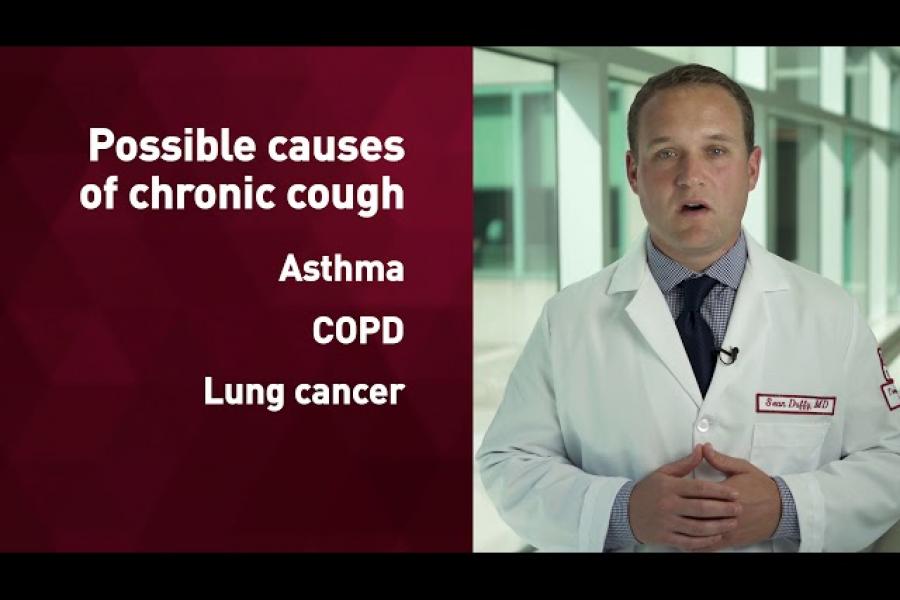For most people, a periodic cough is normal and nothing to worry about. In some cases, a cough doesn’t go away and could be a sign of an underlying medical problem such as the common cold, asthma, lung cancer or chronic obstructive pulmonary disease (COPD).
Coughs that take longer than a day or two to clear can also come with other symptoms, such as irritation in the throat or trouble breathing. When a cough doesn’t go away, it can be hard to pinpoint why.
A chronic cough is when a cough lasts more than 8 weeks or causes other medical problems like vomiting or trouble breathing. The Temple Lung Center’s Chronic Cough Program team specializes in finding the cause of your chronic cough and can offer treatments to lessen the cough or address the underlying medical condition.
What Causes You to Cough?
A cough is the body’s reaction to irritation in the airways. When mucus or a foreign object needs to be removed, special receptors in the airways alert the cough center in the brain. This sends a signal to the diaphragm, abdominal muscles and rib muscles to trigger a cough.
Possible causes of chronic cough include:
- Blood pressure medications
- Allergies
- Acid reflux
- Post-nasal drip
- Asthma
- COPD
- Lung cancer






